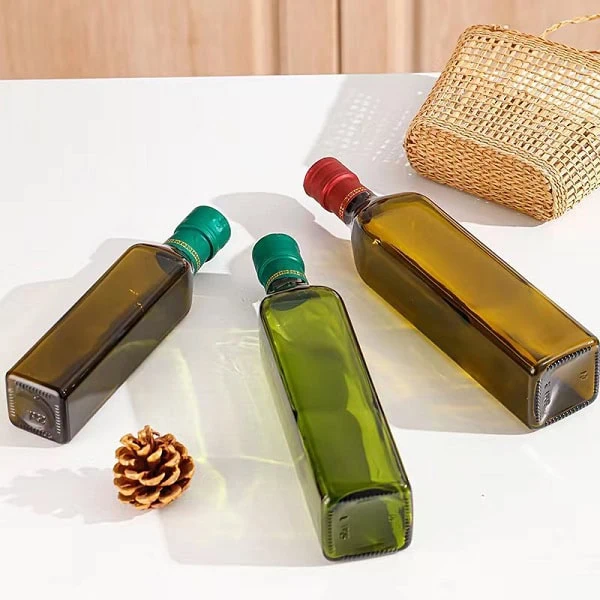When it comes to packaging olive oil, the choice of container is crucial. Among the various options available, the glass olive oil bottle stands out for its ability to preserve the quality, flavor, and aroma of the oil. However, not all glass bottles are created equal. Quality control plays a pivotal role in ensuring that these bottles meet the highest standards. Here’s what you need to know about quality control in glass olive oil bottles and why it matters.
Why Glass Bottles for Olive Oil?
Glass is the preferred material for olive oil packaging due to its non-reactive nature. Unlike plastic or metal, glass does not interact with the oil, ensuring that its taste and nutritional properties remain intact. Additionally, glass bottles are eco-friendly, recyclable, and offer a premium look that enhances the product’s appeal. However, the benefits of glass can only be fully realized if the bottles are manufactured and inspected with stringent quality control measures.

Key Aspects of Quality Control in Glass Olive Oil Bottles
- Material Integrity:
High-quality glass is essential for olive oil bottles. The glass must be free from impurities, bubbles, or inconsistencies that could compromise its strength or clarity. Quality control begins with sourcing the right raw materials and ensuring they meet industry standards. - Thickness and Durability:
The thickness of the glass is critical to prevent breakage during transportation or handling. Quality control processes involve measuring the thickness of the bottle walls and conducting stress tests to ensure durability. - Seal and Closure Compatibility:
A proper seal is vital to prevent oxidation and maintain the freshness of the olive oil. Quality control checks ensure that the bottle’s neck and opening are perfectly designed to accommodate airtight caps or corks. - Visual Inspection:
Every glass olive oil bottle undergoes a visual inspection to detect defects such as cracks, scratches, or uneven surfaces. Automated systems and manual checks are used to ensure that only flawless bottles make it to the packaging line. - Capacity Accuracy:
Olive oil bottles must adhere to precise volume measurements. Quality control ensures that each bottle meets the specified capacity, preventing underfilling or overfilling. - Labeling and Printing:
For branded olive oil bottles, the clarity and accuracy of labeling are crucial. Quality control ensures that logos, text, and designs are printed correctly and adhere to the brand’s specifications.
The Role of Automation in Quality Control
Modern manufacturing facilities use advanced technologies like machine vision systems and automated inspection tools to enhance quality control. These systems can detect even the smallest defects, ensuring that every glass olive oil bottle meets the highest standards. Automation not only improves accuracy but also speeds up the production process, making it more efficient.
Why Quality Control Matters
For producers, investing in high-quality glass olive oil bottles is a way to protect their brand reputation. A defective bottle can lead to leaks, breakage, or compromised product quality, resulting in customer dissatisfaction and potential losses. For consumers, quality control ensures that they receive a product that is safe, reliable, and visually appealing.
Conclusion
Quality control is the backbone of producing superior glass olive oil bottles. From material selection to final inspection, every step is crucial to delivering a product that meets the expectations of both producers and consumers. If you’re looking for a trusted partner in glass bottle manufacturing, consider WXglass. With years of expertise in producing and exporting high-quality glass bottles, WXglass ensures that every product meets the highest standards of quality and reliability. Choose WXglass for packaging solutions that elevate your brand.

